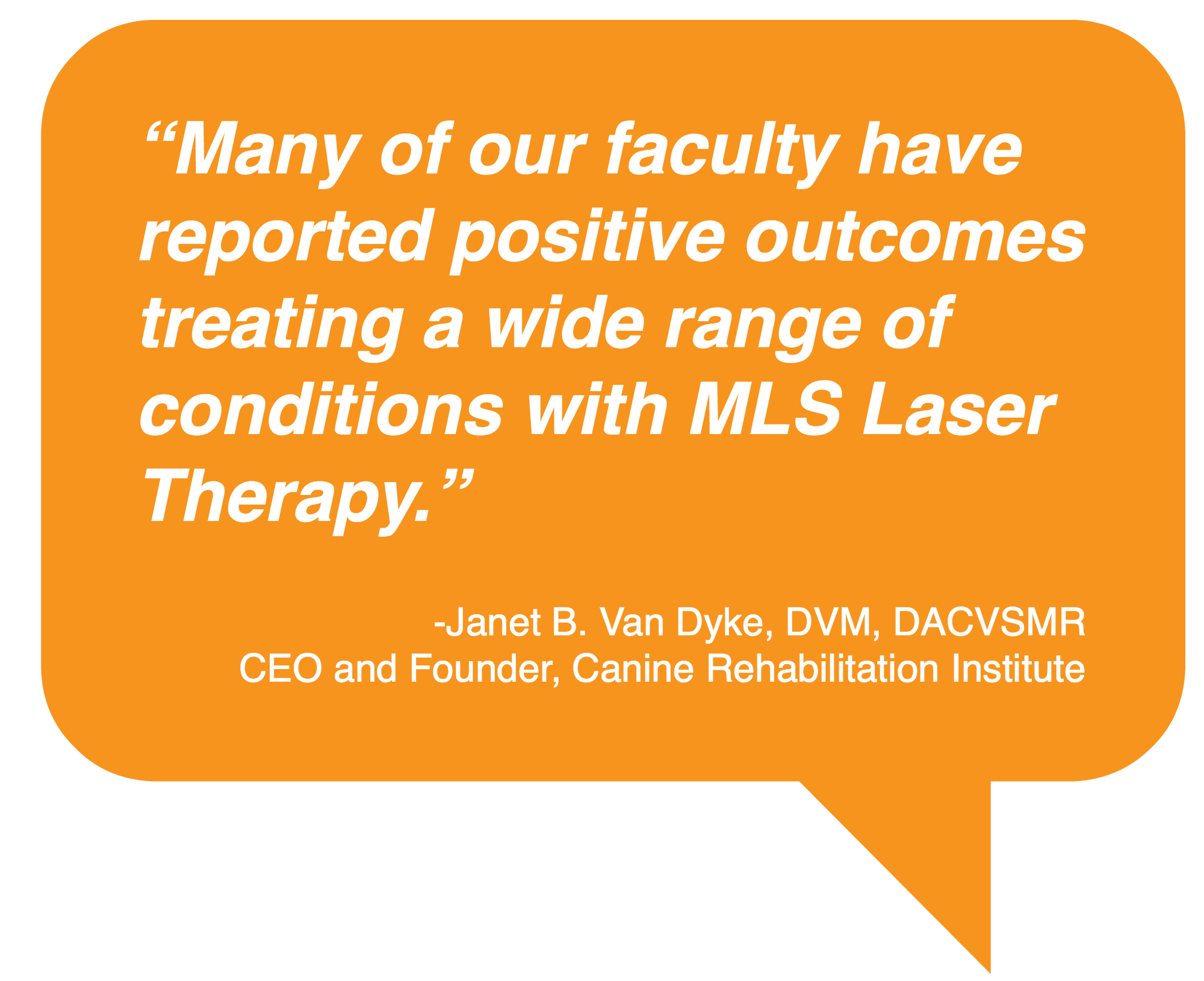Presented by Tammie Hodge, DVM - River Mill Animal Hospital in Tampa, FL
Marley, a female 2-year old Rhodesian Ridgeback mix came in to River Mills on September 16, 2016 with a bite wound from a pygmy rattlesnake. She had been taken to a local ER on September 10th to be treated for the initial bite. Her examination revealed a large open wound at the ventral cranial thorax, discharge and strong odor. Also present was wound necrosis, and skin sloughing at the original bite sites secondary to the venom.
Diagnosis: Infected Wound & Chronic Inflammation
Treatment Plan: Debride the wound to remove black skin and yellow tissue. Diffuse firm swelling within the tissue surrounding the wound. Betadine flush followed by laser therapy daily for 12 days to combat wound contamination and chronic inflammation. Bandage with silver sulfadine changed twice daily.
Results: Successfully Treated! Marley saw improvement in her bite wound after just a few MLS Laser treatments. Tissue and skin continued to regenerate and heal as treatment progressed and improved vastly after closing via sutures.
Photographic Progression - less that one month total time:
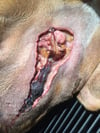
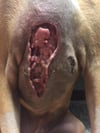
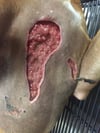
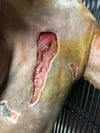

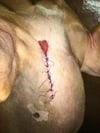
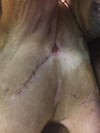
Treatment note: On September 29th, Marley presented for her 11th laser treatment. Her wound had shrunk in size, and wound depth had decreased significantly. The superficial skin exposing muscle layer was open and no further sloughing had occurred. She appeared ready to close the skin in some areas. Tammi conducted a wound debridement with a #10 scalpel blade along the muscle and skin margins and was able to close 3/4 of the wound with a skin layer 3-0 PDS cruciate mattress pattern. The proximal portion of the wound was too wide to close via sutures and was expected to shrink and heal with laser treatments and cleaning.
Check out Marley's happy face during her last treatment:

Interested in downloading the entire case study for review?
Looking for more? Here are some other case studies that might interest you: Treatment of Anal Sacculitis, Treatment of Paresis of the Hind Legs in River Otter, Treatment of MRSA Lesions in a Cat


